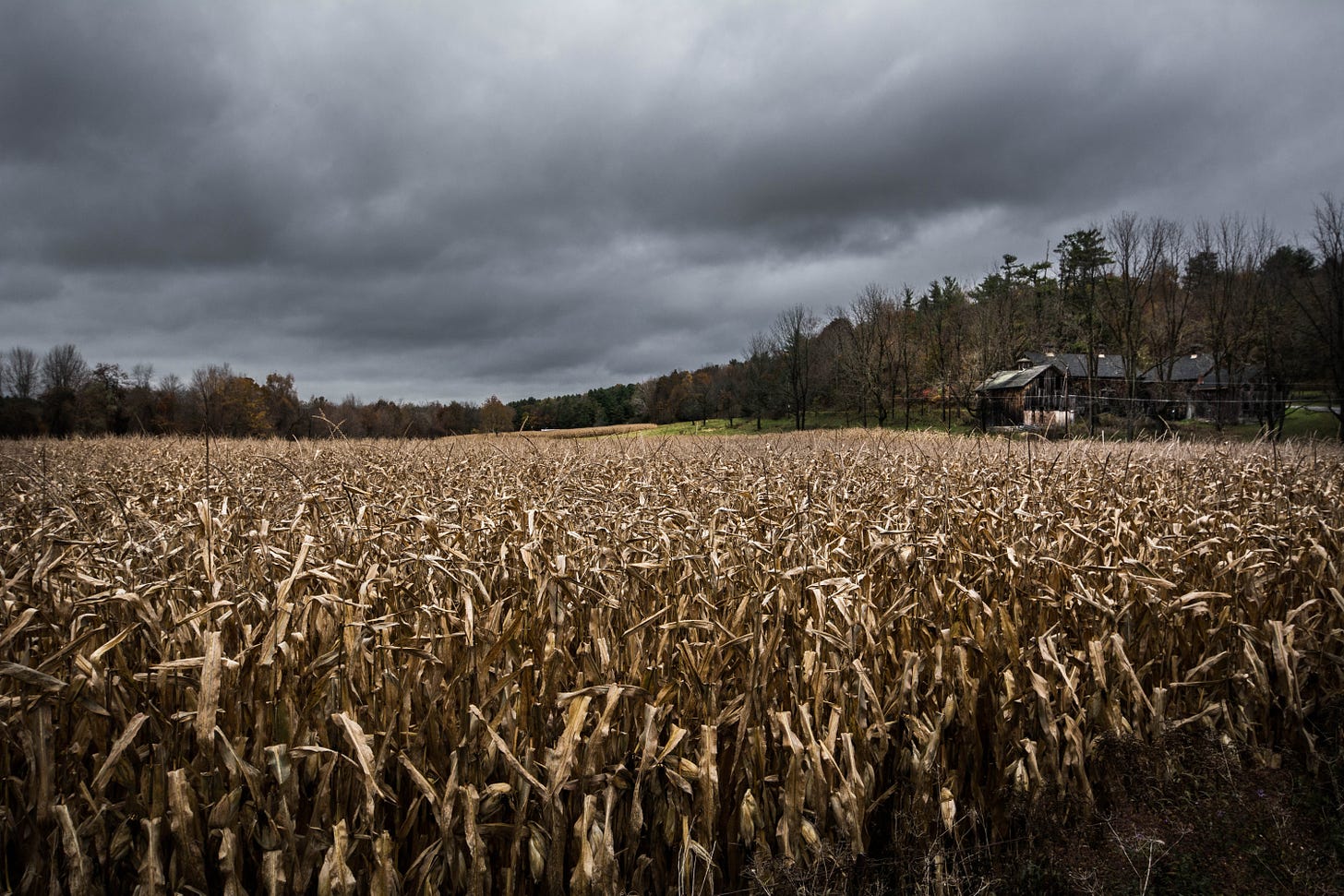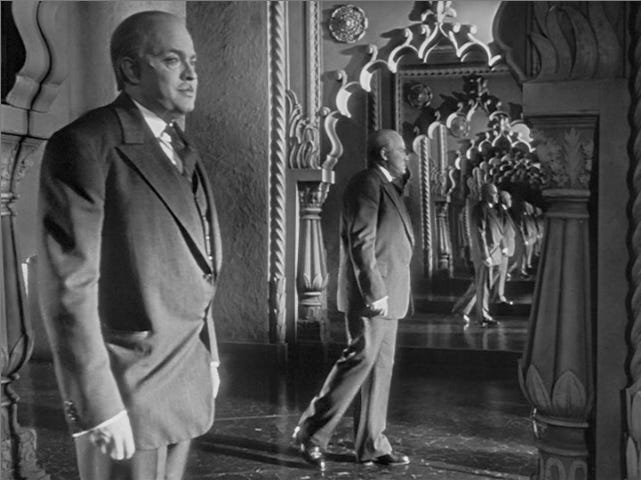The hearings on January 6th have been very well done so far. I hope they will conclude with a recommendation that Donald Trump be indicted for sedition. I have a wild thought that they might even argue he should be indicted for treason along with several other key planners, most particularly John Eastman.
The hearings also underscore why someone like Liz Cheney is so forthrightly pursuing the matter and why someone like Bill Barr was desperately trying to rein in Donald Trump after the election. Cheney shares most of the policy positions taken up by Trump’s Administration. Barr has long argued that the effective power of the Presidency is nearly unlimited—if, that is, it is held by a Republican. So why work so intelligently and effectively to hold Trump accountable? Why tell Donald Trump to his face that what he was saying was nonsense after spending so much effort to fend off previous legal challenges to him?
It comes down to different conceptions of power. It’s a keyword of social thought, not just in academic analysis but in everyday life, and like many such keywords it has a great many meanings, often to muddling or confusing effect when they overlap.
For example, when we talk today, as we increasingly do, of “privilege”, of power that derives from large-scale social structures that transect most of our everyday lives. This is a kind of power that you generally don’t have to do anything conscious or agentive to have and despite the slogans, there isn’t much you can do to surrender it in the instances where it matters. You may not even know that it has been deployed on your behalf, and the people controlling outcomes that favor this kind of power may not be conscious of it either. Its operations tend to be most visible at moments of sharp contradiction or in facing collective action intended to erode or transform this kind of power, which is why most radical and progressive politics fixate so strongly on those junctures and seek to intensify their pressures. This the kind of power that keeps you from being noticed by a cop, that lets a landlord or seller see you as a plausible renter or buyer, that makes it easier to be seen for who you are and what you bring to the table in a job search or in college admissions. It makes it possible to take daring positions or engage in confrontations with greater confidence. It lets you see yourself as normal, human, universal and expect to be seen as such by others. This kind of power is what makes domination possible: the rule of some groups over other groups, the alignment of this sort of everyday power consistently in particular social directions. It’s a kind of power that is perpendicular to formal kinds of authority: it may act through authority, but it is not what is formally vested in authority. Nowhere does it say that the police are about suspecting—or shooting—one kind of person and ignoring another kind, but the formal power to suspect—or kill—transects the power of privilege and is expressed through it.
So what about power as authority, as having power to directly and consciously shape outcomes through command over a particular office, institution, or professional role. This kind of power can be a mix of formal and informal, explicitly described and implicitly asserted. As a professor, I have the formal power to evaluate students, to control their outcomes in one of roughly of 32 courses they will take in college. I have implicit authority as an expert in my field: I expect in certain situations to be deferred to by colleagues or wider publics when making statements of fact about my field. Both kinds of authority have limits. If I grade in highly arbitrary or punitive ways, I risk being overruled or disciplined. I cannot refuse to grade. If I give As (or Ds) to everyone regardless of what they do, I may be held accountable in some fashion. If I mistreat a given student in overt ways in the classroom, I may also be called to account for it. Similarly, if my assertions of expertise are wildly at odds with the standards in my field, if they are inconsistent or incoherent, if they extend well beyond what my expertise is thought to apply to, if what I say is repugnant to common sense, I may find my authority has little weight. And people who wholly reject knowledge in my field as relevant or true for their own ideological reasons won’t credit my authority regardless.
This kind of power depends on the coherence and extent of the institution that hosts it. If students did not think that each of those 32 experiences were an incremental contribution to their future prospects, at least some of them would be indifferent to my evaluation of their work. (It’s why some of us dream of ungrading or of systems of education delinked from credentialling: we want what we teach to be valued for its own sake, rather than to be an expression of formal power, however fractional, over students.) If no part of our public culture depended upon or was invested in the truth value of expert opinion, then being an expert would be a wholly esoteric matter.
This is the sort of power, in a very different systemic location, that Bill Barr and Liz Cheney are defending. Barr is invested in the power of law, in courts and judges and briefs and statutes. That hasn’t kept him from arguing that the executive power granted in the Constitution is or ought to be extremely broad in many matters, and it hasn’t kept him from using the law to defend conduct that he seemingly regarded with disdain. You don’t have to believe in the principles behind a system that grants power-as-authority, but you do have to believe in the system and defend its systemic character. Liz Cheney may have strongly right-wing policy preferences, but she believes in the administrative and governmental systems that makes “policy preferences” meaningful and persistent, a durable source of power over society and power within society.
Which is why she’s willing to take a strong stand against Trump, because Trump stands for a third kind of power. It’s the kind of power used to wish people into a cornfield. It’s like the cliche that Trump is a poor man’s idea of a rich man: he is striving for the kind of power associated with adolescent fantasy, where power is getting to do whatever you want. Mostly we think of this as kind of power that is unavailable in reality. The person seeking it never really gets it, is always subject to the power of authority whenever they get close to having it—there’s always someone behind the throne who can yank the power away. Or we think this kind of wish for power is inadvisable. We think that actually achieving it turns out to be a sort of monkey’s paw wish where getting to do whatever you want ends with you discovering that you don’t want anything any more once you have that kind of power, that the desire for that kind of power is fueled by its lack. (As is most desire.)
Trump’s railing against the “Deep State” in this sense is perfectly cogent. He’s not wrong that people who are invested in power derived from institutions, systems and rules stand against him, now including Barr and Cheney, even when they might imagine him as a substantive ally in terms of their policy preferences. The reason is that they understand that when someone gets the power to wish everybody into the cornfield, no other kind of power matters any more. All there is left is the person who gets to do whatever he wants, the fluffers and enablers who hope to benefit by being the tools of his will, and the mini-me’s who hope that there will be fractal versions of cornfield-wishing available to them further down the line. That’s people like Boebert, Gaetz, Greene, Cawthorne: hoping that by fluffing Trump, they’ll be allowed to be mini-Trumps in the swirls and eddies trailing behind him. It’s worked for some Republican governors so far, after all.
The cornfield-wishing kind of power has to regard all rules, all constraints, anything that stands in its way, as unimportant. The sad truth is that the more boldly this kind of power expresses that attitude, the more it tends to make that wish come true. The person who is granted any form of executive power in any institutional system who simply does as they wish often finds that no one will stop them, and that the people whose power derives from rules and formal authority will accede to the executive and rewrite or reinterpret the rules to try and legitimate what the executive has already done. In all formal systems of authority that are somewhat decentralized or that permit autonomy throughout the institution, there will be individuals who discover the same principle on a small scale. They find that they can do as they please and no one will stop them.
There’s only two times where the person who seeks power to do whatever they want is in danger of losing power. The first is at the beginning: if they lose their nerve, if they hold back, or if someone else has the courage right there and then to say “no, it’s not going to happen that way”. The second is on the way out: at retirement, at disability, at death, in a moment of absence. (There’s a reason coups are often staged when the authoritarian is out of the country.) The answer for a prospective cornfield-wisher looking to preclude that threat is two-fold. Never be on the way out, and if you might be, destroy everything before you let that happen. Leave the people whose power derives from formal authority with nothing. Redefine everything, make l’etat into moi such that apres le deluge, such that everything from Xanadu will get crated up and the sled will be tossed in the furnace. Trump made a good start on that work, and he and his fluffers are busy working towards that goal even more now.
That first kind of power survives under authoritarianism. The person who has the power to get whatever they want doesn’t have enough power to erase those deep social structures. On the other hand, that power doesn’t materially affect the tyrant. There are still marriages and gender and families in Peakesville Ohio, none of which provide anything to stop or impede little Anthony from wishing people into the cornfield and bringing snow down on the crops. The second kind of power largely doesn’t survive: it becomes a pantomime. Equatorial Guinea has a government with ministers and bureaucrats and a Chamber of Deputies and a Senate and none of it matters.
This is the last chance to take out a man—now a fully inhabited ecological niche of men and women, really—who are striving for the kind of power to do whatever they want. Every once in a great while, when someone gets that power, what they turn out to want is largely benevolent, gracious and generous. That’s an extraordinary rarity in history. Normally the person who wants that kind of power will leave wreckage and chaos behind them, whether through collateral damage or through conscious malevolence. Trump and Trumpism have already exhibited both.
Aunt Amy had one chance to grab a fireplace poker and take Anthony out in Peakesville. This is that moment for all of us.





